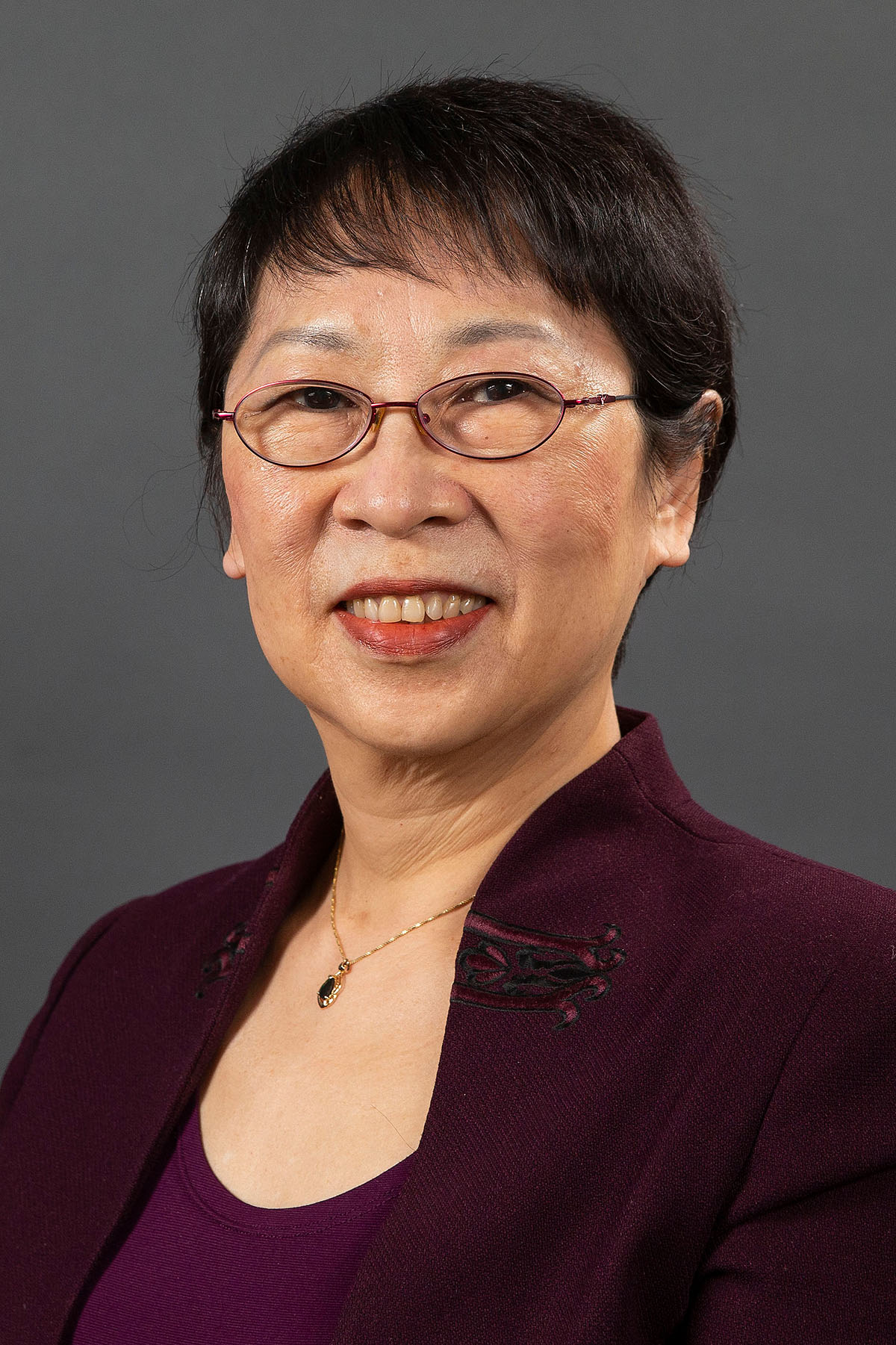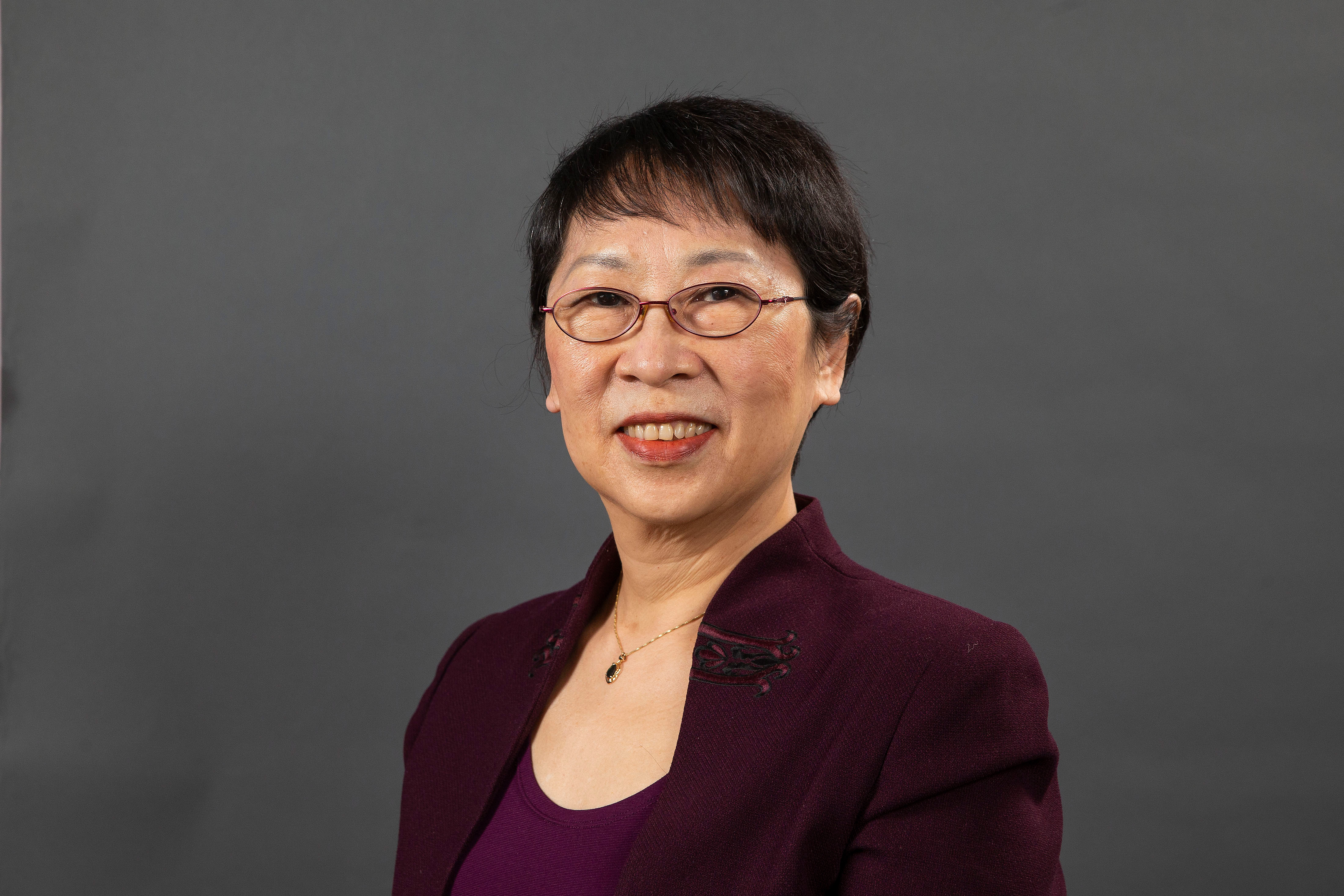Peipei Qiu, PhD

Peipei Qiu, Professor Emerita of Chinese and Japanese on the Louise Boyd Dale and Alfred Lichtenstein Chair, joined the Vassar faculty in 1994 after two years of teaching at Fordham University. During her tenure at Vassar, she has served as the Advisor to Class of 2021, Chair of the Department of Chinese and Japanese, and Director of Asian Studies Program. She earned her BA and MA from Peking University and M.Phil. and PhD from Columbia University.
A specialist in Japanese literature, Professor Qiu taught a diverse array of courses in Japanese and Chinese literature, Asian Studies, Women's Studies, and Japanese language. Her research interests include Japanese poetry, comparative studies of Japanese and Chinese literature, Daoist tradition in East Asian literature, the reception history of Daoist philosophy, and women in East Asian literature and societies.
Professor Qiu has received many prestigious honors and awards, including National Endowment for the Humanities Fellowship, Mellon Foundation Grant, The Japan Society for the Promotion of Science Fellowship, The Japan Foundation Dissertation Research Fellowship, Columbia University President’s Fellowship, and The Japan Foundation Fellowship for Researchers. Her scholarship has been published in English, Chinese, and Japanese, including books, Bashō and the Dao: The Zhuangzi and the Transformation of Haikai (University of Hawai'i Press, 2005), the award winning Chinese Comfort Women: Testimonies from Imperial Japan’s Sex Slaves (University of British Columbia Press, 2013; Oxford University Press, 2014; Hong Kong University Press, 2014), 《日本帝國的性奴隸: 中國「慰安婦」的證言 (Hong Kong University Press, 2017; China Social Science Press, 2018), and numerous research articles. Professor Qiu's work has garnered international attention and has been featured by major media outlets such as the BBC, The Wall Street Journal, Voice of America, and China Daily, among others.
Contact: peqiu@vassar.edu
Selected Research Articles
- “Why I Write About War”, “Chinese ‘Comfort Women’,” in Barbara Mujica, ed., Collateral Damage: Women who Write about War. The University of Virginia Press, 2021. 30-43.
- “From Kuang 狂to Fukyō 風狂: Eccentric Personas in Chinese and Japanese Poetry,” in Qian Nanxiu, Ricard J. Smith, and Zhang Bowei, eds., Rethinking the Sinosphere: Poetics, Aesthetics and Identity Formation. New York: Cambria Press, 2020. 96–135.
- “Documenting War Atrocities Against Women: Newly Discovered Japanese Military Files in Jilin Provincial Archives,” in Pyong Gap Min, Thomas R. Chung, and Sejung Sage Yim, eds., The Transnational Redress Movement for the Victims of Japanese Military Sexual Slavery, Berlin, Deutschland: De Gruyter, 2020. 271–293.
- 构建超越民族国家的历史记忆—美国“慰安妇”纪念碑运动调查, in Riben qinhua Nanjing datusha yanjiu, 2019, Vol. 4, 14–26.
- “‘Comfort Women’ and Aggressive War: Reading Korean and Chinese Survivor’s Accounts.” S/N Korea Humanities, Volume 3, No. 1, March 2017, 69–89.
- “The Zhuangzi, Haikai, and the Poetry of Bashō,” in Daoism in Japan: Chinese Traditions and Their Influence on Japanese Religious Culture. (New York: Routledge, 2015). 179–208.
- “Celebrating Kyō: The Eccentricity of Bashō and Nampo,” in Early Modern Japan: An Interdisciplinary Journal, Volume XVI (2008). 84–91.
- “Reinventing the Landscape: The Zhuangzi and the Geographical Imagination of Bashō,” in Eleanor Kerkham, ed. Haikai Intersections: Exploring Matsuo Bashō’s Poetic Spaces. (Palgrave Press, 2006). 66–71.
- “The Changing Views of the Zhuangzi in Kagami Shikō’s Haikai Theory,” in Japan Studies Review, Volume X (2006), pp. 3–17.
- “Aesthetic of Unconventionality: Fūryū in Ikkyū’s Poetry,” in Japanese Language and Literature, 35 (2001) 2: 135–156.
- “Onitsura’s Makoto and the Daoist Concept of the Natural,” Philosophy East & West 51 (July 2001) 3: 232–246.
- “Bashō’s Fūryū and the Aesthetic of Shōyōyū: Poetics of Eccentricity and Unconventionality,” Japan Studies Review (May 2001) 5: 1–36.
- “Inventing the New Through the Old: The Essence of Haikai and the Zhuangzi,” Early Modern Japan IX (Spring, 2001) 1: 2–18.
- 俳諧の確立と荘子―日本詩歌古典重視の伝統の観点からの分析, 日本研究 : 国際日本文化研究センター紀要 (Bulletin of International Research Center for Japanese Studies), No. 20, February, 2000.
- 「なぜ荘子の胡蝶は俳諧の世界に飛ぶのか—詩的イメージとしての典故」, 第109回日文研フォーラム (The 109th International Research Center for Japanese Studies Forum, a monograph), July 1998.
- “Adaptation and Transformation: A Study of Taoist Influence on Early Seventeenth Century Haikai,” in Amy V. Heinrich, ed., Currents in Japanese Culture. New York: Columbia University Press, 1997. 185–203.
- 浅谈「雪国」 (A Study of Kawabata Yasunari’s Snow Country), 日本文學 (Journal of Japanese Literature) 3 (1982): 284–294.
- 森欧外小说的思想矛盾记艺术特色 (A Study of Mori Ogai’s Novels), 國外文學 (Journal of Foreign Literature) 1 (1982): 51–79.
- 森鸥外的早期创作 (The Early Works of Mori Ogai), 亚非问题研究 (Journal of Asian and African studies) 1 (1981): 49–54.
In the Media
- Witness History: ‘Comfort Women’ of World War Two
Professor Peipei Qiu was invited by the BBC to help create a radio program. Listen to the interview! - Professor Collaborates on AI Project to Preserve History of Sexual Enslavement by Imperial Japan During WWII
Professor of Japanese and Chinese Peipei Qiu is playing a major role in a new project employing artificial intelligence technology that she hopes will shed further light on the plight of Chinese women who were raped and tortured by Japanese soldiers in the 1930s and 1940s. - AI to preserve oral history of ‘comfort women’. China Daily, October 25, 2023
- BBC News special interview of Peipei Qiu. November 6, 2017.
- Op-Ed: “Why Korea’s ‘Comfort Women’ Must Be Remembered,” South China Morning Post, January 16, 2017.
- Op-ed, “Japan government continues to deny responsibility for sex slavery,” The Conversation. January 27, 2015.
- Q&A with Peipei Qiu: Chinese “comfort women,” Voice of America, June 2, 2014.
- “Writing China, Peipei Qiu, ‘Chinese Comfort Women’,” The Wall Street Journal, June 24, 2014.
- Outrage grows over wartime sex slave claim
- Professor of Chinese and Japanese Peipei Qiu talked about working with Chinese families donating PPE to Vassar on WAMC’s 51% program.
- News Focus with Peipei Qiu
Professor Peipei Qiu on the testimonies of WWII Chinese “comfort women” on This Morning with Alex Jensen. - “Can Japan and South Korea reconcile?”
Peipei Qiu, Professor of Chinese and Japanese on the Louise Boyd Dale and Alfred Lichtenstein Chair, weighs in on this TRT World interview. - ‘Outrageous and inappropriate’: Japanese newspaper under fire for altering its definitions of WWII abuses
Hong Kong Free Press article cites Professor Peipei Qiu’s comments on the decision not to refer to women forced to provide sex for Japanese troops during World War II as “comfort women.” - New teacher’s guide on ‘comfort women’ to be distributed across California schools
Professor Peipei Qiu’s research on the subject of WWII “comfort women” referenced by NBC News. - Chinese ‘comfort women’: accounts of Japan’s wartime sex slaves remembered in newly translated book
Peipei Qiu, Professor of Chinese and Japanese on the L.B. Dale and A. Lichtenstein Chair, and her research were the subjects of a South China Morning Post story. - No more 'Comfort Women' should die without official apology
Peipei Qiu, Professor and Chair of Chinese and Japanese on the L.B. Dale & A. Lichtenstein Chair, and her research on Chinese “comfort women” were mentioned in a China Daily story. - China Daily report: Professor Peipei Qiu’s efforts to assist “comfort women” survivors were recognized by the “Comfort Women” Justice Coalition in San Francisco, July 14, 2017.
- South China Morning Post report, “Chinese ‘comfort women’: accounts of Japan’s wartime sex slaves remembered in newly translated book”. October 24, 2017.
- Guangzhou Ribao 广州日报 report. November 29, 2017.
- Interview with Allison Dunne WAMC Northeast Public Radio. January 8, 2015.
- “Violent Expressions of the Imperialist Conquest,” Los Angeles Review of Books, October 2, 2014.
- “Giving voice, for the first time in English, to the Chinese ‘comfort women’,” Professor Peipei Qiu was interview by Meghan Murphy of Rabble.ca and Feminist Current, April 2014.
- “Cold Comfort: Peipei Qiu Bears Witness,” Vassar Magazine, fall 2014.
Photos
Download images for non-commercial use, photo credit required.
